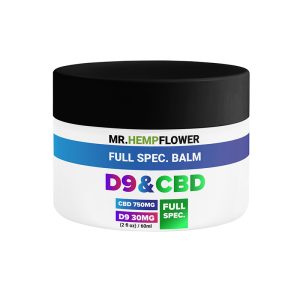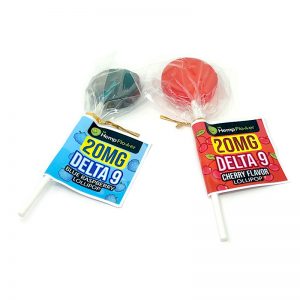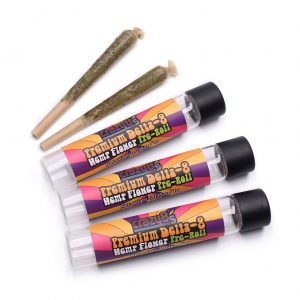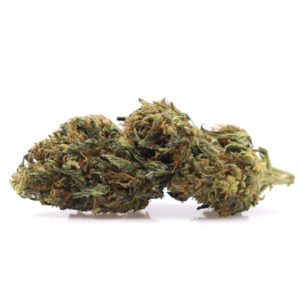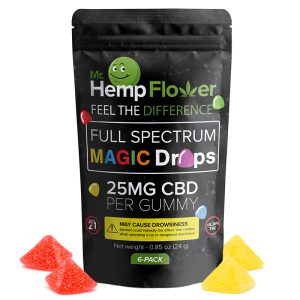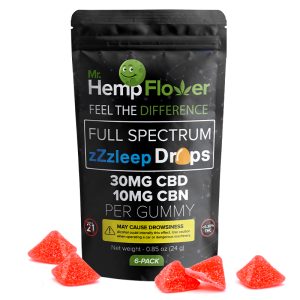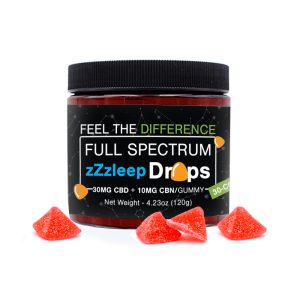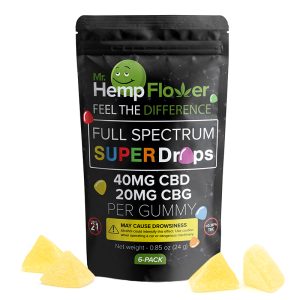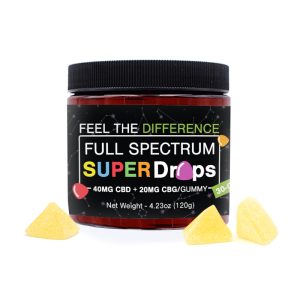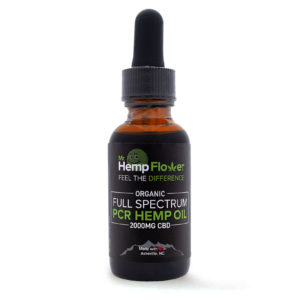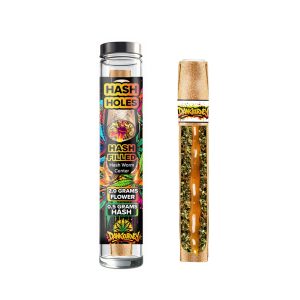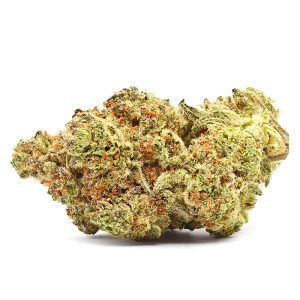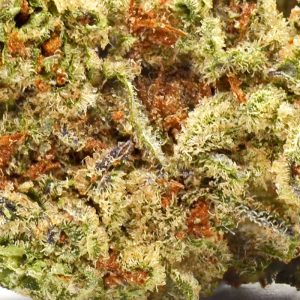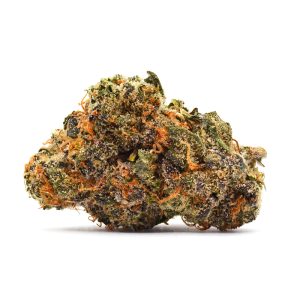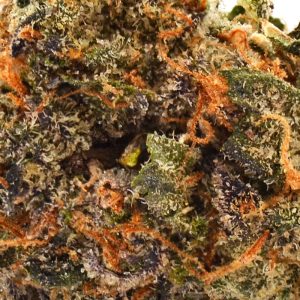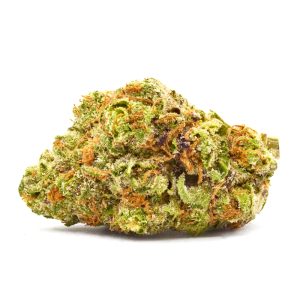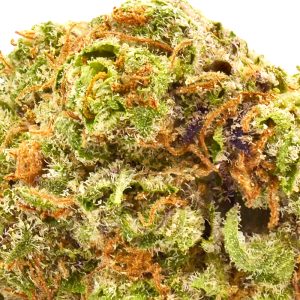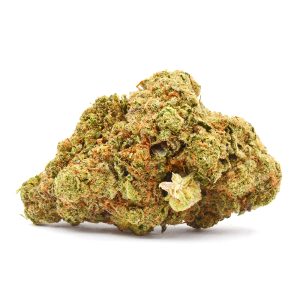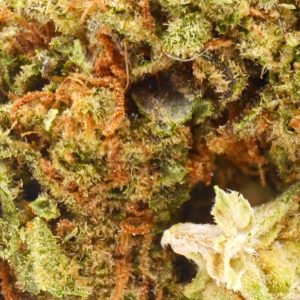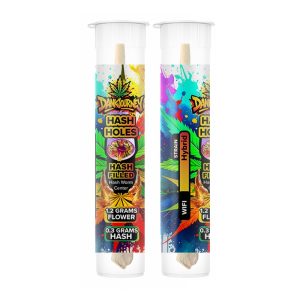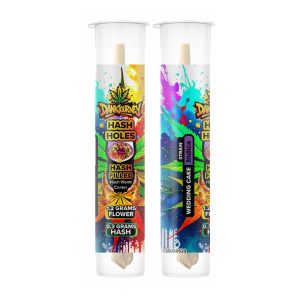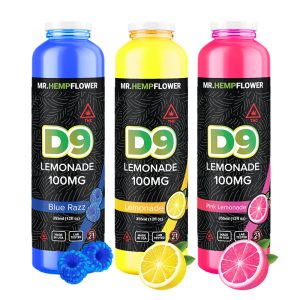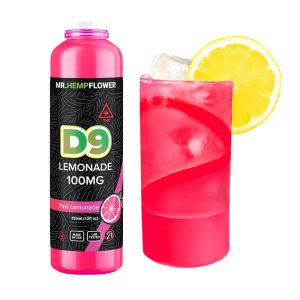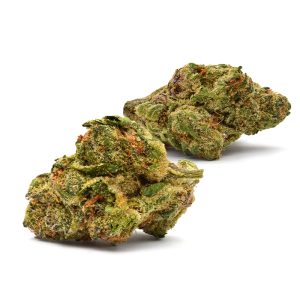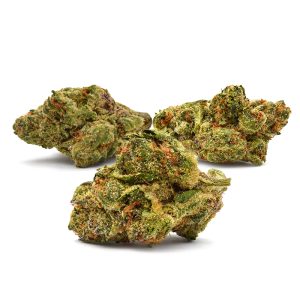What Is THCP?
THCP, the strongest THC analog, has recently entered the cannabis scene. This cannabinoid produces an extremely powerful stimulation that’s described as borderline psychotropic.
This article answers your most burning questions about THCP’s safety, effects, potency, and potential benefits. Most importantly, an answer to the question: does “the more potent, the better” really applies to strong THC analogs? Let’s find out.
What Is Tetrahydrocannabiphorol (THCP)?
Tetrahydrocannabiphorol (short: THCP) is a recently discovered hemp cannabinoid with high potency. It exists in the cannabis plant in very tiny concentrations (less than 0.1%), but it can be extracted directly from the plant using a very challenging technique.
This cannabinoid was discovered in 2019 by a group of researchers who published the findings in the journal Scientific Reports. Here are some of the most interesting things they discovered about this novel compound:
- THCP is one of the 150 cannabinoids naturally occurring in the cannabis plant.
- It has a strong binding affinity to the CB1 receptor, which makes it 33 times more potent than THC.
- Researchers confirmed the importance of the length of the cannabinoid’s alkyl side chain to its potency.
- Some researchers believe that THCP could be the underlying reason for marijuana’s potency in some strains that are more psychoactive despite lower THC levels.
- We don’t know much about the cannabinoid’s benefits.
Discover more: THCV vs. THC — What Is The Difference?
How Was THCP Discovered?
In 2019, a team of Italian researchers discovered THCP (and CBDP) by accident [1].
The researchers studied a cannabis sample (strain: FM2) delivered by the Military Chemical Institute in Florence. They analyzed the sample using mass spectrometry and liquid chromatography to investigate its chemical makeup.
Not only did they discover THCP, but they also discovered CBDP. Both cannabinoids have the same number of hydrocarbon chains, but the difference is that CBDP has very little affinity with the CB1 receptors.
The scientists discovered more about THCP than CBDP, so very little is known about the potential effects and benefits of this compound.
How does THCP work?
THCP works like other cannabinoids by interacting with the body’s endocannabinoid system (ECS). The ECS is a large and complex system of receptors, endocannabinoids, and enzymes that plays a role in the regulation of sleep, appetite, mood, memory, and immunity. The two primary receptors of the ECS are:
- Cannabinoid receptor type one (CB1) — located primarily in the central nervous system (CNS).
- Cannabinoid receptor type two (CB2) — located primarily in the peripheral nervous system (immune cells).
The CB1 receptors are responsible for the intoxicating effects produced by THC. The researchers who discovered THCP found that it, too, binds to the CB1 receptors in the brain.
In fact, this cannabinoid is a strong agonist of the CB1 receptor, which means that it stimulates the receptor to a high degree. THCP has an affinity for the CB1 receptor that’s 33 times higher than delta-9 THC.
As a rule of thumb, the length of the alkyl side chain indicates the cannabinoid’s activity and potency. THCP’s side chain has seven carbon atoms, while THC’s has five.
Is THCP Safe?
There hasn’t been enough research on the safety of this cannabinoid.
Anecdotal evidence shows that THCP is very strong and seems to increase the user’s tolerance levels. Effects-wise, it’s similar to other THCs, but because it’s so potent, it causes withdrawal symptoms after the experience.
This cannabinoid is extremely potent, so it’ll very likely cause more severe side effects than THC if the dosage is not adjusted. Because this cannabinoid interacts with the same receptors in the body as THC, it likely shares the same side effects as THC — but in a more pronounced form.
For now, the potential risks and dangers of consuming this cannabinoid remain unclear. Even synthetic cannabinoids that activate the CB1 receptor fully seem to produce issues like addiction and withdrawal. With that said, handling this compound should be done with caution.
THC causes the following side effects:
- Dry mouth (cottonmouth)
- Insomnia
- Increased appetite
- Lethargy
- Memory loss
- Anxiousness
- Paranoia
To avoid experiencing side effects, it’s recommended to start with the tiniest dose of 0.5 mg and increase gradually. Trying this cannabinoid is recommended for seasoned users only.
How Is It Made?
THCP is found in the hemp plant in extremely low concentration, but it can be made from cannabidiol (CBD) as the starting material.
In the hemp plant, cannabinoids are synthesized from cannabigerolic acid (CBGA). CBGA breaks down into other precursor cannabinoids, including CBDA, THCA, and similar, when it comes into contact with enzymes throughout the plant’s growing process.
In the same way, CBGA creates THCPA or tetrahydrocannabiphorolic acid that’s transformed into THCP through the process of decarboxylation or the application of heat.
Is THCP Natural?
THCP is a natural cannabinoid.
Experts assume that some strains contain higher levels of it compared to others. An example is the FM2 strain investigated by the Italian research group that contained less than 0.1% THCP.
The hemp plant contains less than 0.3% delta-9 THC and up to 30% CBD, while marijuana can have natural THC levels that go up to 30%.
It’s also thought that the marijuana plant contains more THCP than hemp because it naturally produces higher levels of tetrahydrocannabinol.
With that said, manufacturers either process the plant to obtain this cannabinoid (again, in small amounts) or convert it from cannabidiol (CBD). If obtained using the second method, this cannabinoid may be considered semi-synthetic.
Will THCP Get You High?
Yes, this cannabinoid can get you extremely intoxicated with a small dose.
According to users who have tried it, THCP is like THC but much more intense. Users often describe it as giving an “almost psychedelic” experience.
THCP Effects & Benefits
THCP is 30 times more active than delta-9 THC, so it takes a very small dose to experience its effects.
In general, this cannabinoid shows the same effects as THC but with a “psychedelic” note. It is recommended to take it lightly or avoid it altogether if you have experienced THC’s adverse effects, including anxiousness, racing heart, memory loss, or paranoia.
Will THCP Make You Fail A Drug Test?
Yes, you’ll likely fail a drug test after using THCP.
Standard drug tests are not sophisticated enough to differentiate between THC and THCP. Although we don’t know exactly for how long THCP remains in the system, if you’ve used it within two weeks or a month away from taking the test, it can show up.
Is THCP Legal?
The legal status of THCP in the United States is complicated.
This cannabinoid is not explicitly mentioned in any bill, but it may be illegal in states that have banned THC, including delta-8 and delta-10. States have a difficult time keeping up with the advances in the hemp industry, so they impose general rules that may incorporate similar cannabinoids under the same ban.
By the delta-8 THC logic, THCP should be legal in those states where hemp-derived tetrahydrocannabinols haven’t been banned.
The US is undergoing cannabis reform, so laws are subject to change. As a rule of thumb, THCP should be illegal in states that have banned all forms of THC. Before buying any novel cannabinoid, make sure to check state laws for THC and its analogs.
How Much Stronger Is THCP Than Delta-8, THC-O & HHC?
Here’s how THCP compares to the THC we have on the market.
Delta-8 THC & THCP
Delta-8 THC is around 50% less potent than delta-9 THC, and THCP is 30 times stronger than delta-9. This means that THCP is 60 times more potent than delta-8 THC.
Delta-8 is known to give a mellow, relaxing feeling that’s completely opposite from THCP’s stimulating effects. THCP may affect your sleep quality, cause rapid heart rate, and make you extremely anxious, while delta-8 is known as the mild THC isomer that doesn’t cause anxiousness.
THC-O & THCP
THC-O or THC-O acetate is an artificial cannabinoid that doesn’t naturally occur in the cannabis plant. This chemical compound is a prodrug of THC and is three times as potent as delta-9. This means that THCP is also much more potent than THC-O.
HHC & THCP
Hexahydrocannabinol (HHC) is a hydrogenated form of delta-9 THC, so it has a longer shelf life. HHC is slightly less potent than THC, which means that THCP is more potent than HHC as well. Both cannabinoids are stimulating and share nearly the same effects as THC.
Conclusion: Should You Try It?
THCP is currently at the top of the cannabinoid hierarchy potency — it’s 30 times stronger than delta-9 THC. Because it’s so potent, starting with a small dose is key to avoiding side effects. Products infused with this cannabinoid are rare, so make sure to check the manufacturer and buy from reputable sellers that present a Certificate of Analysis.
If you don’t react well to THC (it gives you anxiety), it’s best to avoid taking THCP. You have plenty of other non-intoxicating and mildly intoxicating cannabinoids to choose from, including delta-8 THC, cannabidiol (CBD), and cannabigerol (CBG).
FAQs on Tetrahydrocannabiphorol (THCP)
How potent is THCP?
According to research, THCP is 30 times more potent than delta-9 THC due to its long alkyl chain.
Is THCP stronger than Delta 8?
Yes. THCP is stronger than delta-9 THC, which is 50% more potent than delta-8 THC.
Does THCP show up on a drug test?
Like other THC analogs THCP will likely show up on a drug test.


